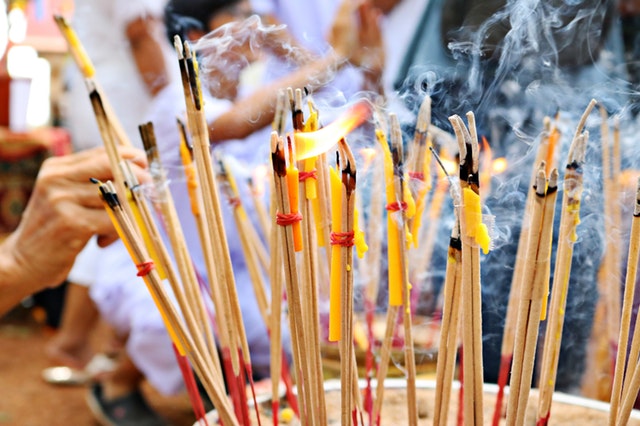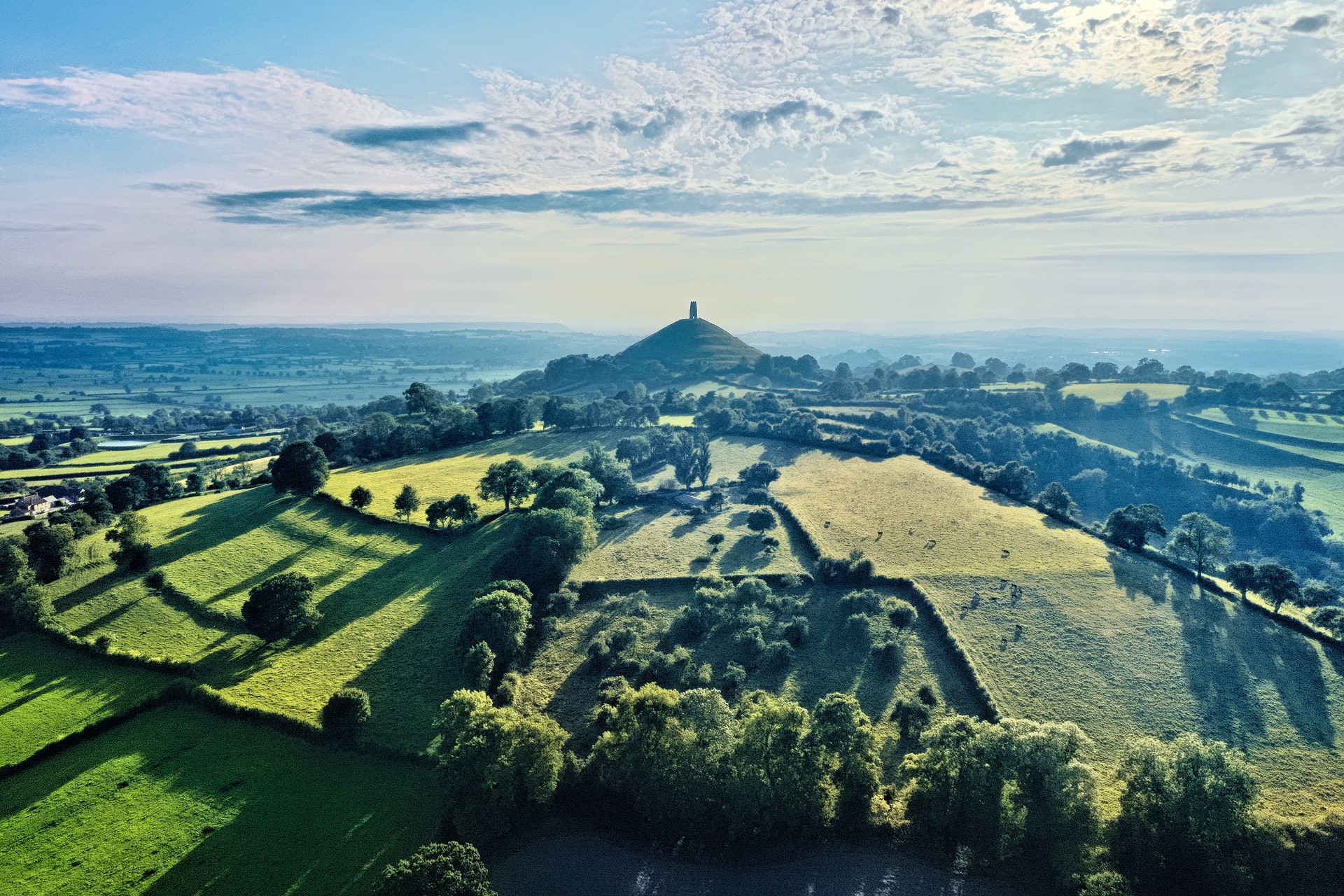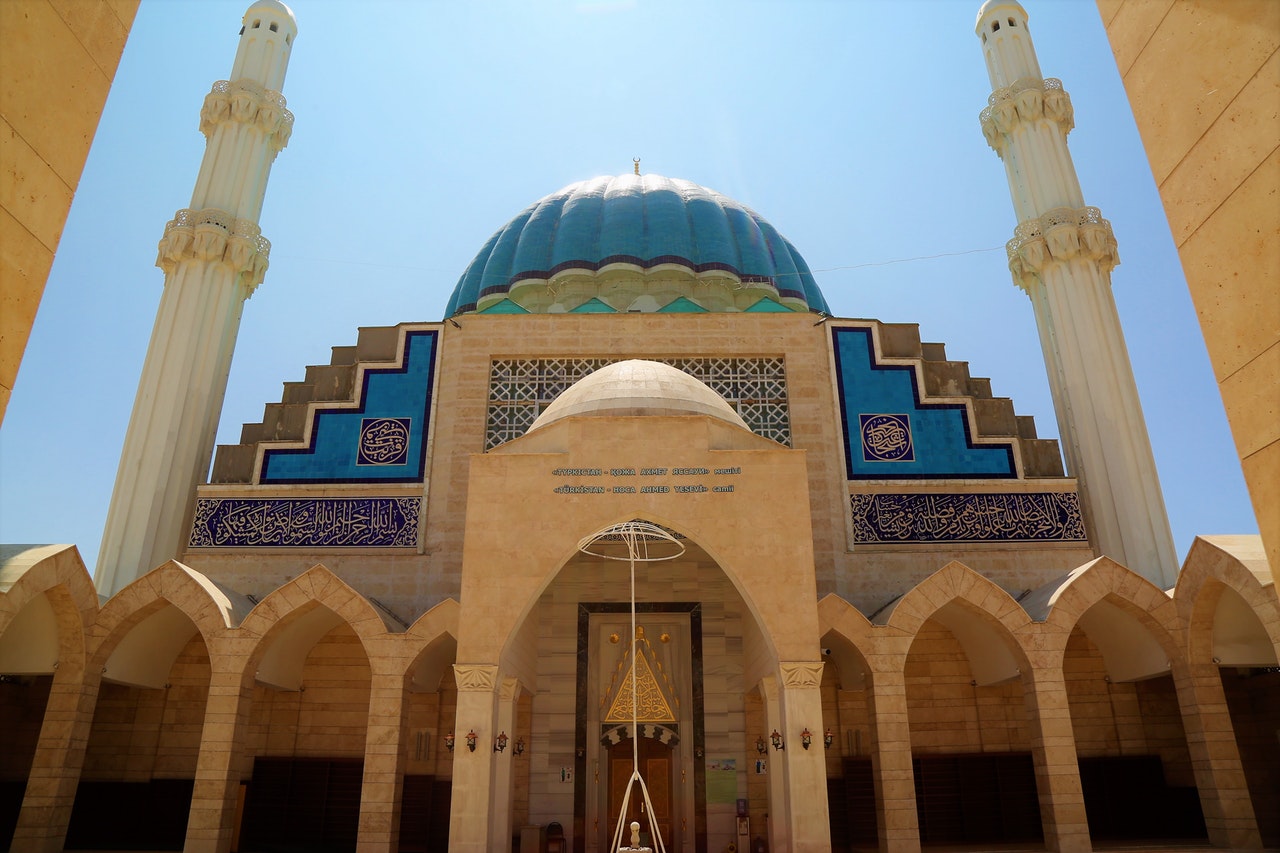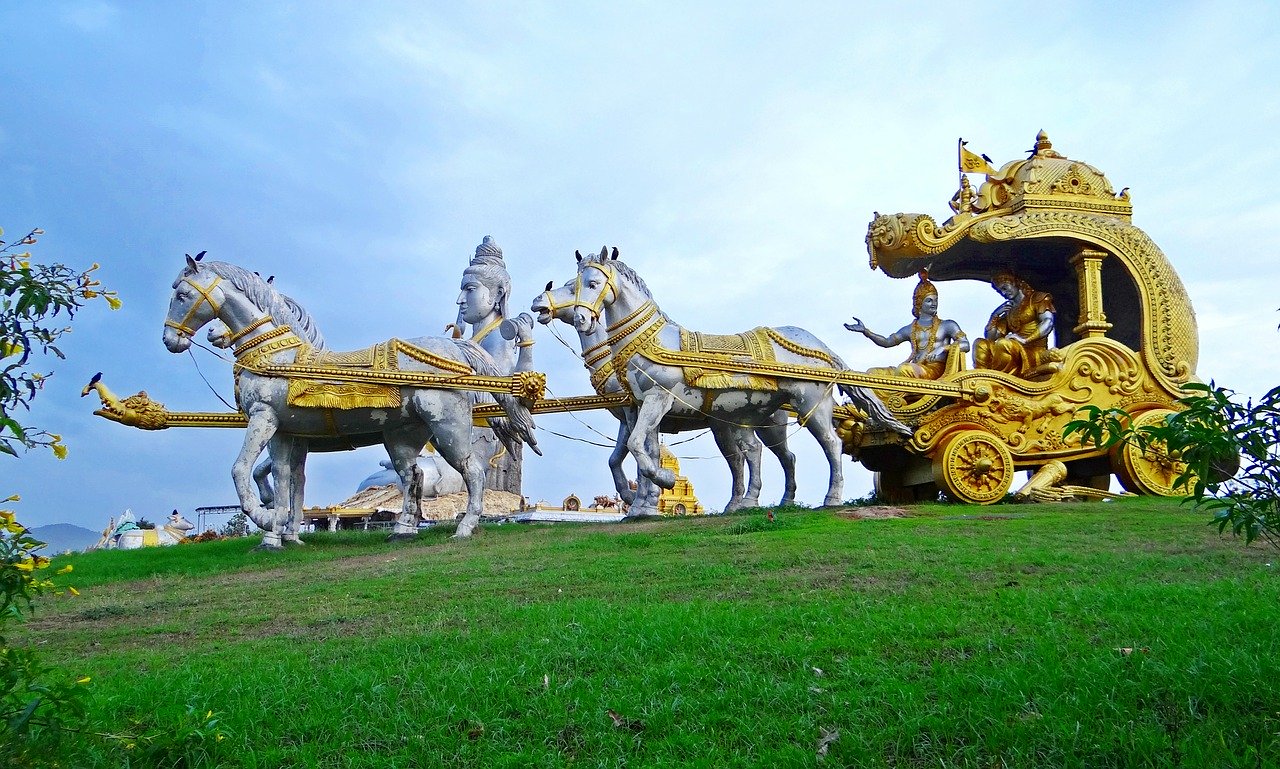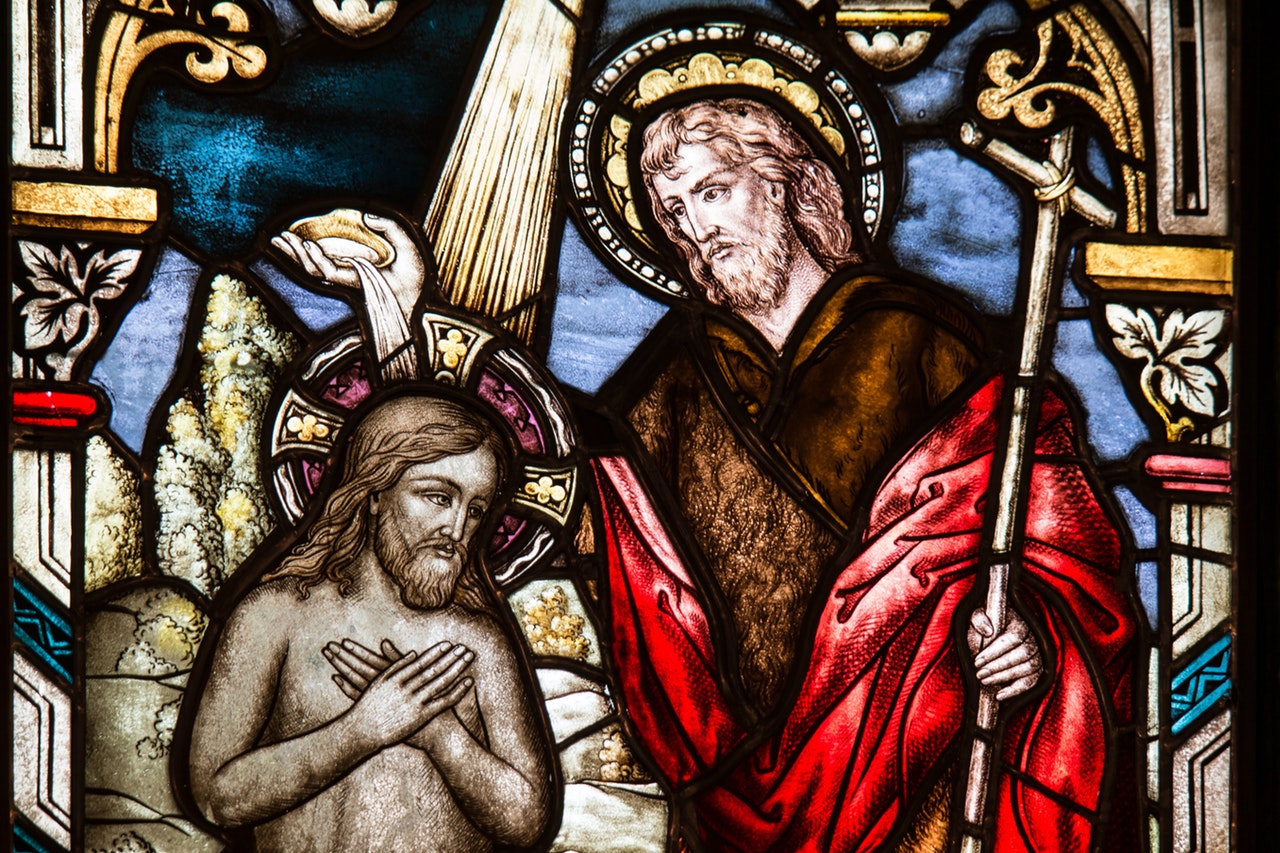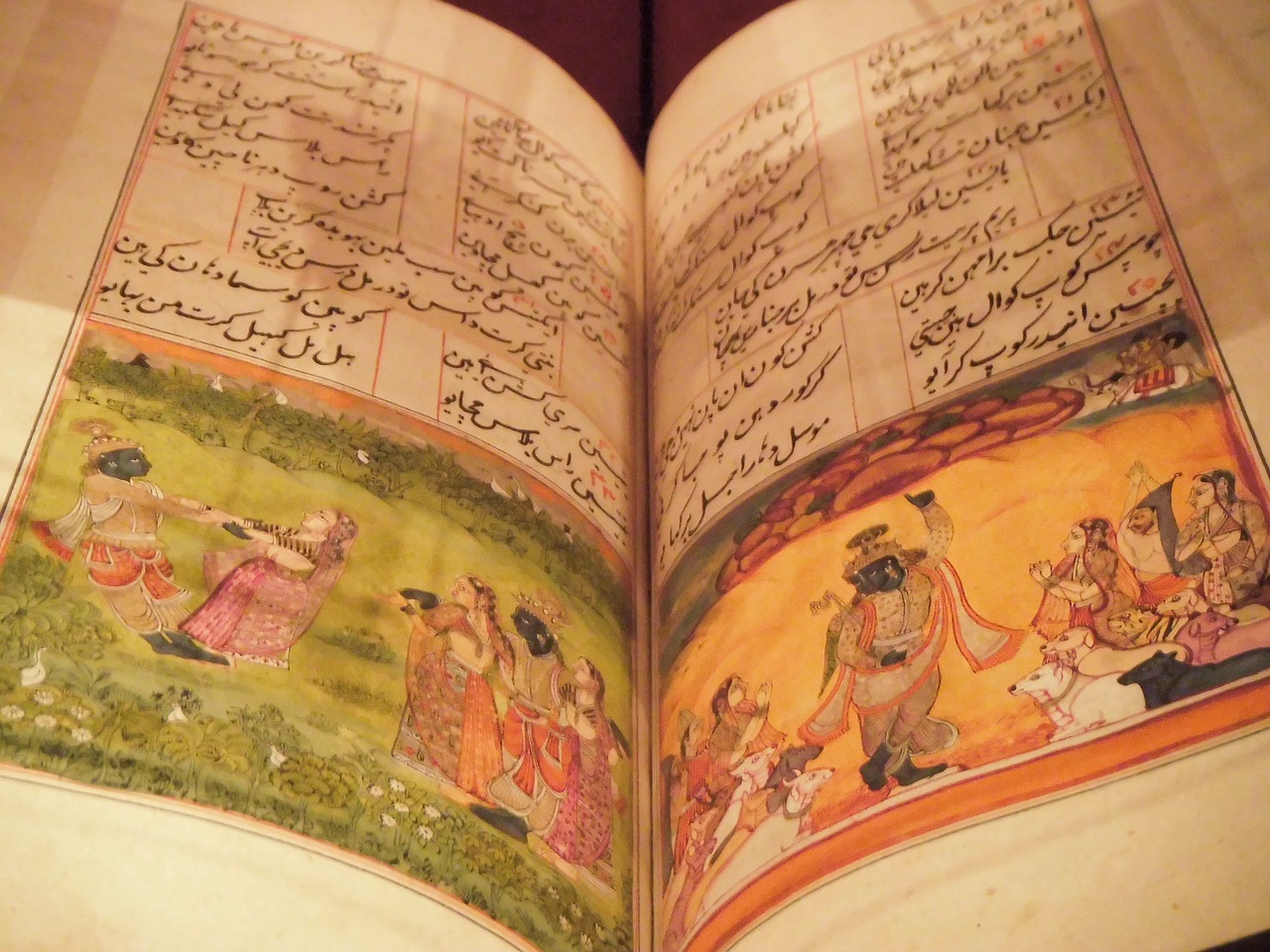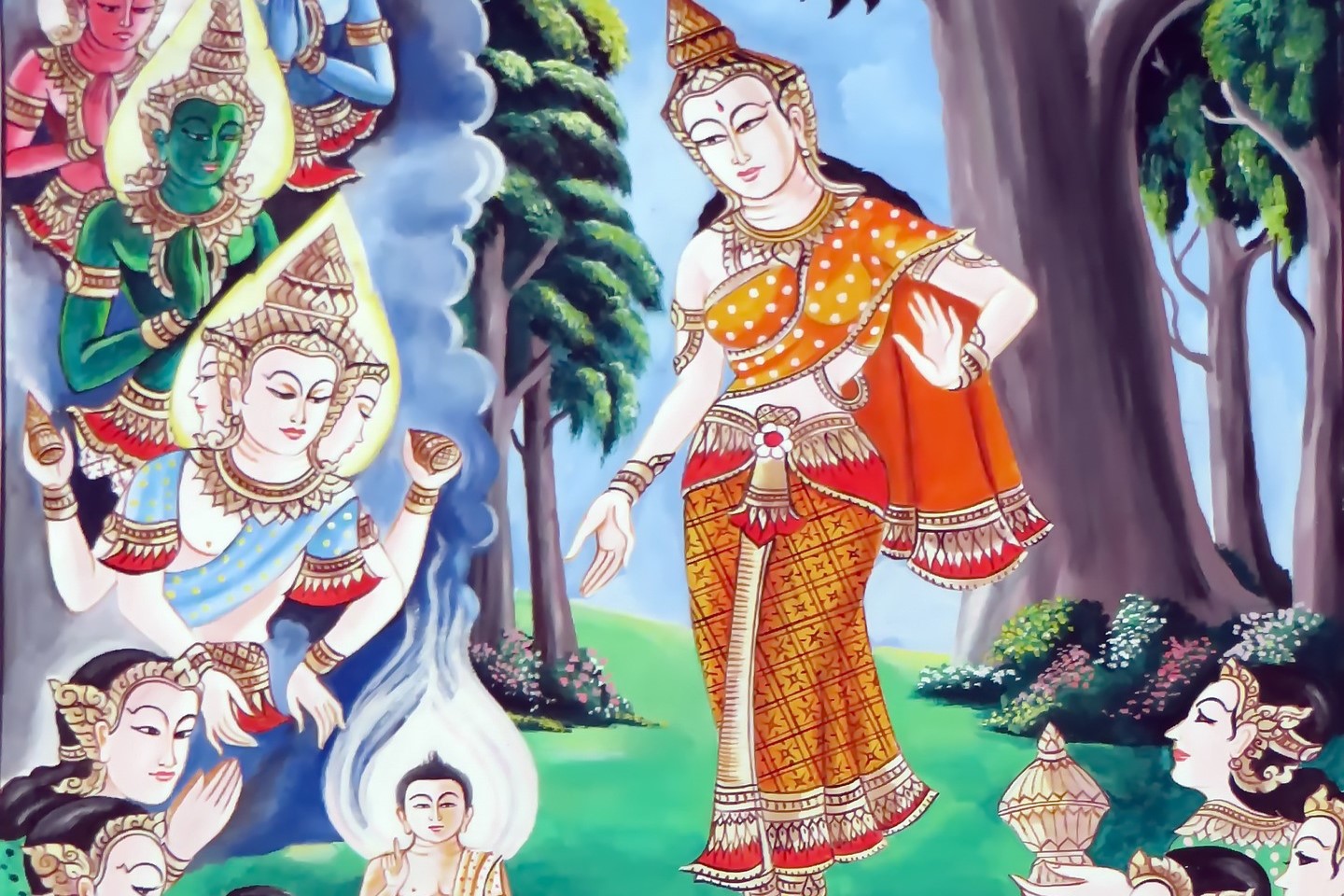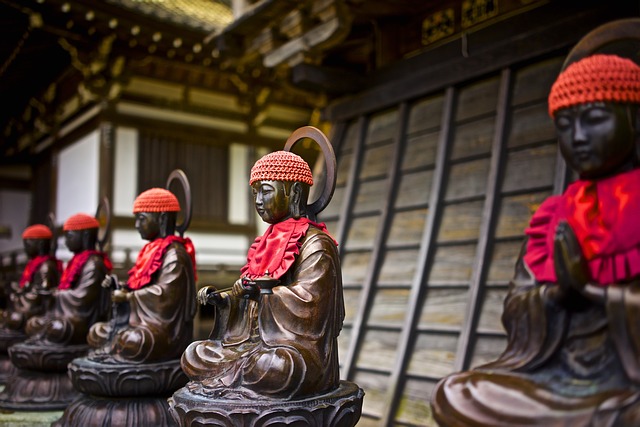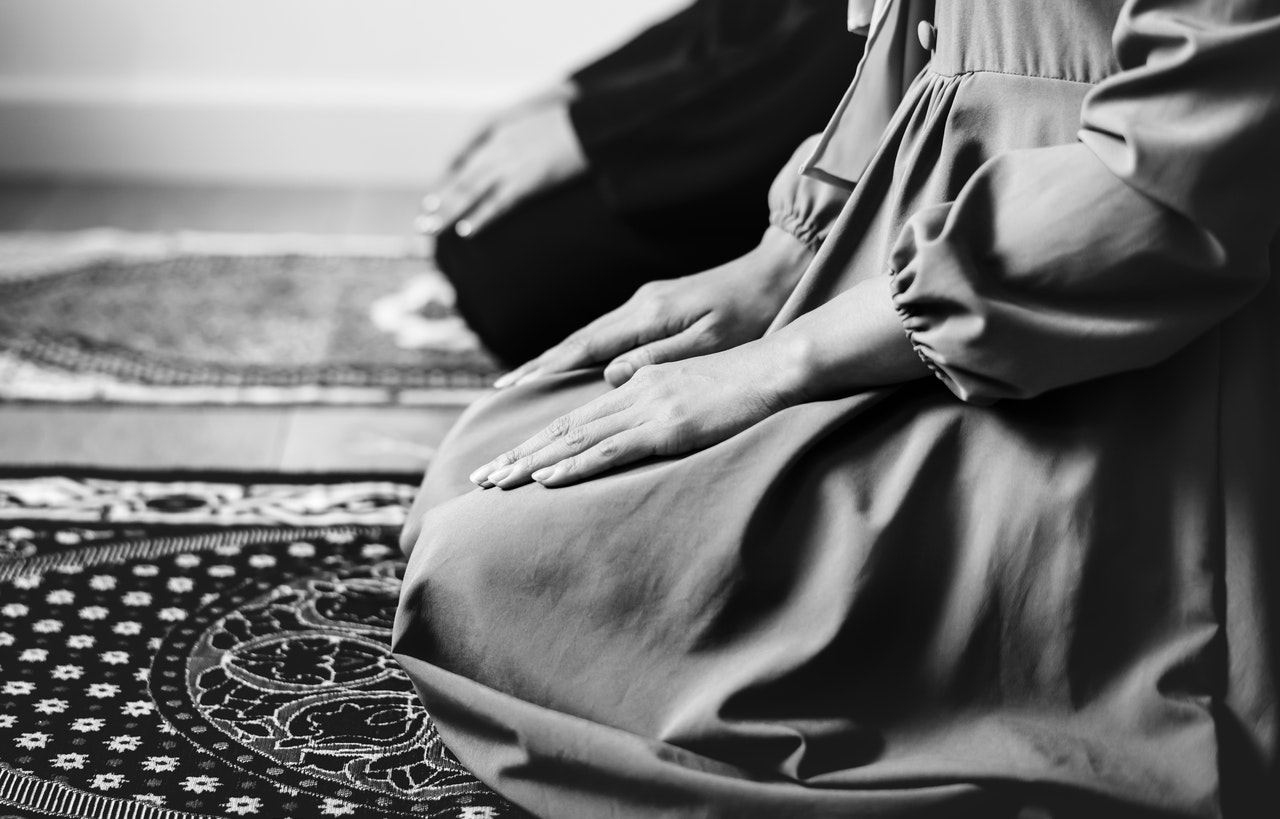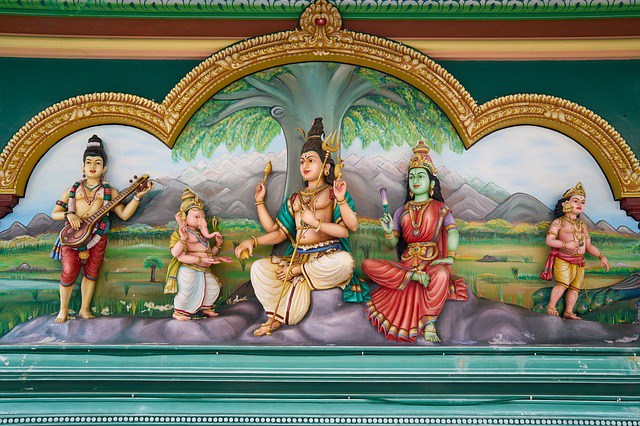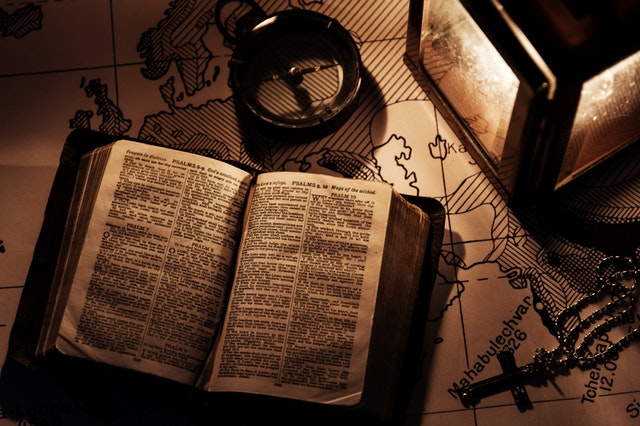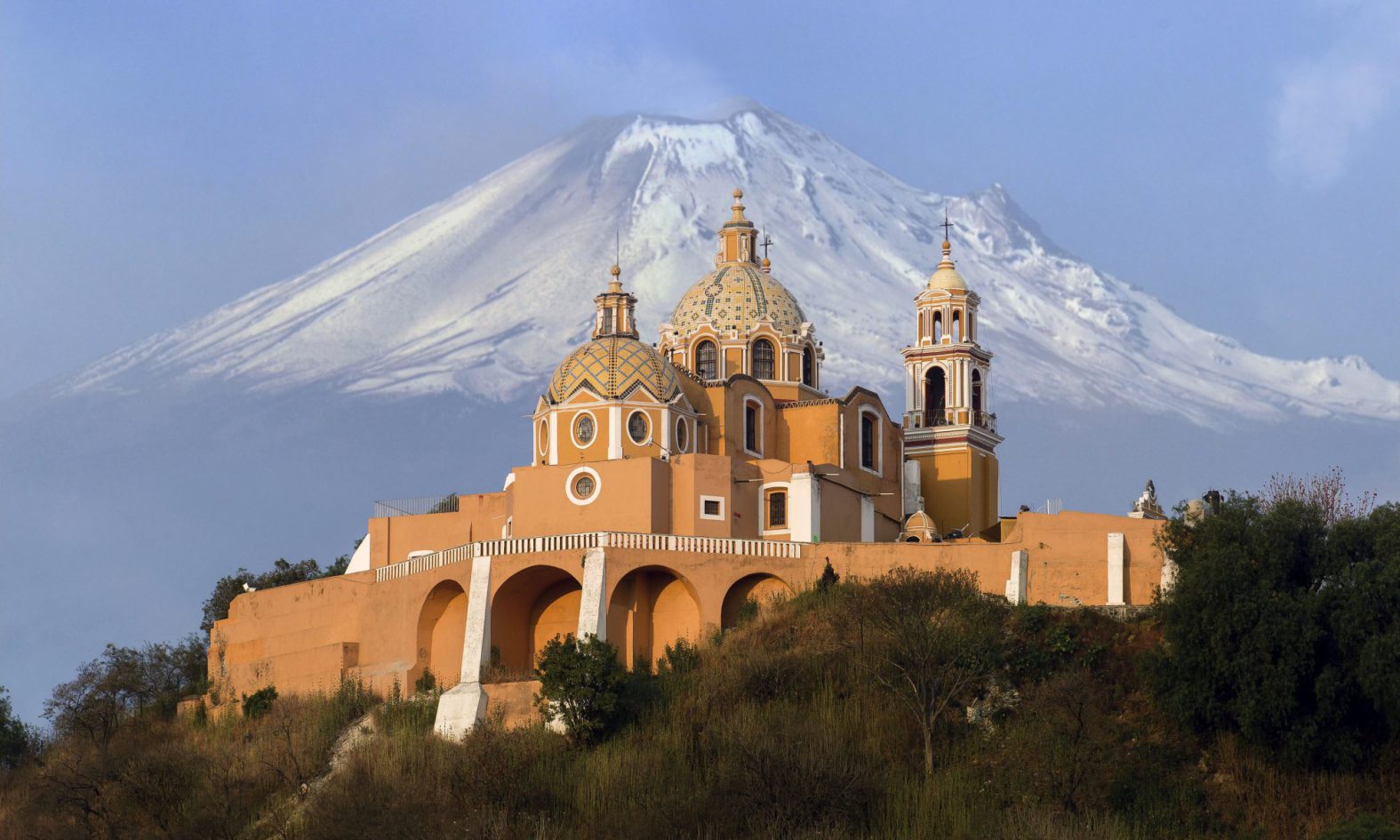
Blog
All the latest news and articles from the OCRS
We are now accepting submissions for blog posts. Fancy writing for the OCRS? Click here to get in touch!
The End
2 September 2025 | Luke Burns
The OCRS will be closing with effect 31 December 2025. I started this project because I wanted to provide people with a source of clear, simple information on religious traditions from around the world, to act as a bridge between sometimes dense and esoteric academic writers and the general public, to expand people’s awareness of spiritual concepts, and perhaps give a little balance in a conversation too often prone to animosity and misunderstanding.
Religions are languages, not brands
9 October 2023 | Jonas Atlas
When we speak of religions today, they are often described like products in a supermarket: packages of beliefs, rules of conduct, symbols, and rituals, which are offered by specific brands. These brands advertise their own particular product range: reincarnation in the package of one religion, a heaven in that of the other; prayer in the package of one religion, meditation in that of the other; priests in the package of one religion, rabbis in that of the other.
What the Weltanschauung!?
20 June 2022 | Luke Burns
In June 2022 the Independent Schools Religious Studies Association (ISRSA) published a response to the 2018 proposal by the Commission on Religious Education to overhaul the subject of Religious Education, make it more academically focused, and rename it to Religion and Worldviews. We have previously covered the proposed change, and its challenges, here: Religion and Worldviews (24 February 2019). This article was updated by Luke Burns on 22nd June 2022
Is Religious Education out of Date?
18 August 2021 | Luke Burns
The National Secular Society has recently published a piece by Keith Sharpe, in which he argues that it’s time to move on from Religious Education. Sharpe’s argument is centred on the ambiguity and lack of purpose that accompany Religious Education in the current period. He makes a number of points, which I have summarised below. 1. RE has always been a vehicle for communicating cultural values. Rather than a distinct area of learning as with other curriculum subjects like maths, history or physics, religious education has always been a form of socialisation, a process through which children are inducted into a national identity based on societal norms, values and beliefs.
Life on Other Worlds
14 September 2020 | Luke Burns
The existence of life in the upper atmosphere of Venus has potentially been demonstrated today by the publication of data and analysis by the Royal Astronomical Society. But what does it mean that microbes, perhaps not too dissimilar from those found on Earth, have (probably) been discovered on our sister planet? A discovery of phosphine gas indicates that either a completely unknown form of chemistry is taking place, or - tantalisingly - life exists beyond the Earth.
What Makes a Place Sacred?
13 April 2020 | Luke Burns
To claim that a location, structure, or geographical feature is ‘sacred’ is to assert that it is ‘set apart and regarded with special reverence’ (Wolffe, 2017(a), p.213), but there are many ways to understand this sacrality, where it comes from, and how it is expressed by different groups of people. The term sacred has a strong religious association, and usually means that something serves a religious function, or holds importance for people by virtue of its religious associations.
Iman in Islam: faith and practice in Islamic religion
5 March 2020 | Luke Burns
In the 49th Surah of the Qur’an, an important distinction is made between belief and practice; Muhammad is instructed to correct those who claim they are believers, instead pointing out they have submitted to Allah’s will. The bedouins say, “We have believed.” Say, “You have not [yet] believed; but say [instead], ‘We have submitted,’ for faith has not yet entered your hearts. And if you obey Allah and His Messenger, He will not deprive you from your deeds of anything.
Karma-Yoga in the Bhagavad Gita
30 December 2019 | Luke Burns
One of the significant texts for Hindus is the Bhagavad Gita, itself part of a larger work - the Mahabharata, which tells the story of a conflict between two groups within the same family, the Kauravas and the Pandavas. The Bhagavad Gita takes place just before this conflict becomes violent, with both armies facing each other, and Arjuna (a Pandava) having second thoughts about the ethical difficulties the battle represents.
Who Creates Religion?
28 March 2019 | Luke Burns
If we’re going to investigate religion, it’s important to ask questions about who defines the subject of our investigation, and what relationship they have to the people and practices being studied. The modern study of religion, beginning in the 19th Century, has been traditionally driven by male European scholars, who have carried their own cultural biases and assumptions - some unconscious, others less so. Until recently, there had been little awareness of these assumptions, and this had affected the ideas and methods used by academics; naturally we will have to negotiate some of these potential pitfalls if we want to build a more comprehensive and accurate picture of religion in the modern world.
Dharma in Hindu Traditions
9 March 2019 | Luke Burns
If you’ve studied Indian religious systems, such as Buddhism and Hinduism, you may have encountered the Sanskrit word ‘Dharma’ (or its Pali equivalent, Dhamma). In fact, even if you haven’t studied Indian religions, there’s a possibility you’ll have bumped into the term elsewhere (anyone remember the Dharma Initiative from TV show Lost?). The word dharma comes from the Sanskrit root dhṛ, meaning “to hold fast, to make secure” (Doniger, 2010, p.
Religion and Worldviews
24 February 2019 | Luke Burns
Published in September 2018, the final report of the Commission on Religious Education - entitled Religion and Worldviews: the way forward - aimed to lay out a range of new ideas about how Religious Education can be approached in UK schools, following consultation with teachers, religious practitioners, and the public. Religious Education in the UK is not the same as religious studies as taught in colleges and universities; the subject has a broader remit, contributing to pupils’ spiritual, moral, social and cultural development, as well as personal well-being and community cohesion (DCSF, 2010).
Language and Religion
18 February 2019 | Luke Burns
If you want to learn about religious practices, philosophical concepts, or ways of living, you will almost certainly begin by looking for resources in your native language - this is the easiest way to engage with new ideas, and the quickest way to get an overview. Most religious principles and practices can be explained in any language with a reasonable degree of accuracy - but what if you want to learn more?
Alternative perspectives in the study of religion
3 February 2019 | Luke Burns
Alternative voices, due to their absence in mainstream texts and dismissal by historical scholars, are sometimes difficult to hear over the sound of traditional narratives – but this is increasingly changing for the better. Where we can open ourselves to these voices, we can improve our understanding of the history of religion, but also our understanding of contemporary religious practitioners as well. This blog post is a part of our online course Introduction to Religious Studies.
Common Misunderstandings About Religious Studies
20 December 2018 | Luke Burns
Religious studies is the academic study of religion, this means that it involves careful and critical investigation, sympathetic understanding, and balanced opinions. However, there are plenty of misunderstandings about what religious studies means, or what it involves. Here are some of the ‘myths’ that we’ve encountered… It’s for priests / religious people This one seems to most frequently relate to a perception that religion = Christianity and religious studies = being a better Christian.
Why study religion?
7 December 2018 | Luke Burns
We’re naturally curious about the world around us, and are drawn to things we find interesting; all of us will learn about something in our free time. It might be a new skill like crochet, web development, tennis, or horse riding; it might be the ins and outs of celebrity lives, footballer statistics, or political intrigue; and it might be an academic subject like geology, history, or… religious studies. But why religious studies?
True Religion and Religious Truths
5 December 2018 | Luke Burns
As practitioners of religious studies, academics are advised against investigating the truth claims of different religious traditions - it’s one of those awkward subjects that cannot be reliably studied (hence the ongoing difficulties integrating scientific empiricism with religious accounts of the world). However, in a world full of competing truth claims, worldviews, and ways of living, the question inevitably sneaks in… what does it mean that different prophets and sages make equally compelling arguments, accrue millions of followers, endure for thousands of years, yet offer no material proof?
Dhikr in the Sufi Tradition
16 November 2018 | Luke Burns
In the centuries following the death of Muhammad, the Arabian peninsula was altered dramatically. The nomadic tribes, whose previous relationships had been mercurial and often violent, had become unified in a great empire, intended (at least by the devout) to reflect the great unity of Allah. Yet there were numerous difficulties in governing such a vast and culturally diverse area, not least of which was managing political power in accordance with Islam.
The foundations of modern yoga
1 October 2018 | Luke Burns
We are faced with a difficult task when it comes to defining contemporary yoga, since there are numerous variants, countless schools, and a broad spectrum of teaching. In Western nations such as the United Kingdom, it’s more likely to be found in health clubs and gyms, where the focus is placed upon the development of physical fitness and emotional stability. An example can be found on the official website of Iyengar Yoga (a variant of Hatha Yoga), which describes the benefits of their technique as “good health, mental peace, emotional equanimity and intellectual clarity” with no reference to the liberation of the purusha from prakriti, despite citing Patanjali’s ashtanga yoga as the original source of the wisdom.
Literary bias in Celebrity Big Brother
25 August 2018 | Luke Burns
One of the important parts of studying religion is to be open to observations all the time (even if you’re curled up watching TV). On a recent episode of Celebrity Big Brother in the UK, two contestants were having a conversation about religion that caught our interest. Rodrigo: I heard that you are a Scientologist, is that right? Kirstie: Yes R: Can you tell me, what is it exactly? Because we see so much about it on the press, and there are so much controversy about it, and I just don’t understand.
Thematic approaches to the study of religion
19 July 2018 | Luke Burns
There are, broadly speaking, two ways to approach religion as an academic subject. The first is based on a sort of family tree model; it looks a bit like this. Religion ==Christianity —-Catholicism —-Eastern Orthodoxy ……Greek Orthodox Church ……Russian Orthodox Church —-Protestantism ……Methodism ……Evangelism And so on. It’s useful from a historical perspective, because we can easily trace back along a tradition’s lineage to see where it diverged from its closest neighbour.
Freedom and faith - open source religion
24 November 2017 | Luke Burns
Religion is often used as a by-word for rigid dogma and traditional patterns of behaviour, while open source is a technological term for freedom to examine, customise, and create without structure or restriction - however these different worlds actually have more in common than you might think. The term ‘open source’ originates in the world of computer programming. It was coined in 1998 as part of an effort to promote the principles of collaborative development, and encourage businesses to share the source code for their projects.
The importance of religious literacy
8 November 2017 | Luke Burns
Religion impacts many aspects of our lives, and religious events are all around us, both positive and negative. Over the last few years, the idea of improving religious literacy has been gaining ground, with the launch of the Religious Literacy Project at the Harvard Divinity School in 2015, and the publication of the All-Party Parliamentary Group on Religious Education’s report (Improving Religious Literacy) in 2016. But what is religious literacy, and how is it different to religious education, comparative religion, or religious studies?
